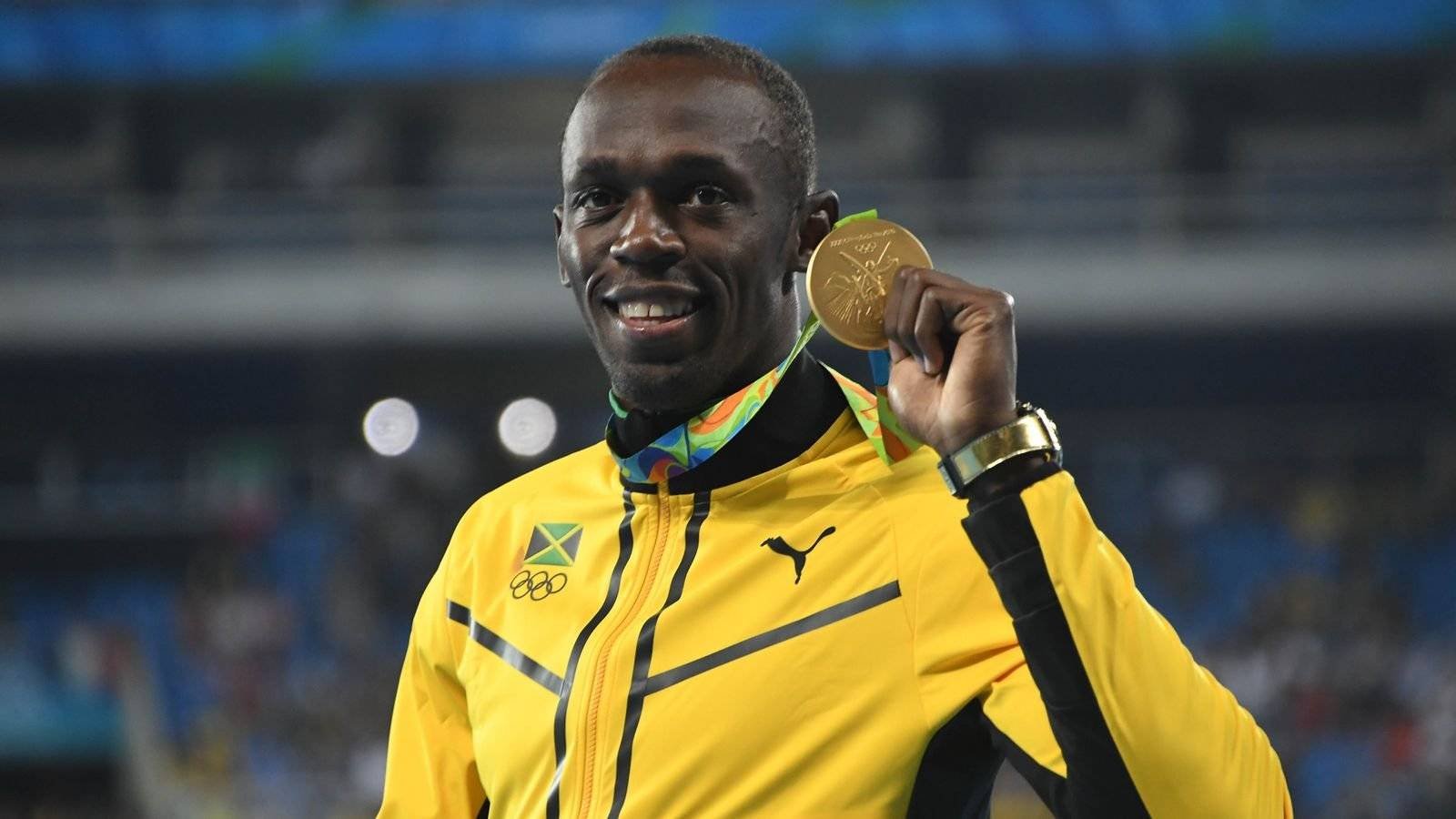Contents
Early Life and Introduction to Athletics
Usain Bolt, the legendary Jamaican sprinter, was born on August 21, 1986, in Sherwood Content, a small town in Trelawny Parish, Jamaica. He was raised by his parents, Wellesley and Jennifer Bolt, in a close-knit family with a strong athletic background. His father was a talented cricket player, while his mother was a farmer.
From a young age, Bolt displayed a natural affinity for sports and physical activities. He spent his childhood playing cricket and soccer with his friends, often showcasing his incredible speed and agility. However, it wasn’t until he attended William Knibb Memorial High School that his talent for sprinting truly blossomed.
Bolt’s introduction to track and field came at the age of 12 when he participated in his first annual high school championships. His raw speed and potential immediately caught the attention of coaches and trainers. Under the guidance of Pablo McNeil, Bolt’s former coach at William Knibb Memorial High School, he honed his skills and developed a passion for sprinting.
Rise to Prominence
Usain Bolt’s meteoric rise to prominence began in the early 2000s when he emerged as a prodigious talent in the sprinting world. As a teenager, he showcased his exceptional speed and raw potential, winning numerous junior championships and setting age-group records.
In 2002, at just 15 years old, Bolt made his mark by winning the 200m and 400m events at the CARIFTA Games, a prestigious regional competition for Caribbean athletes. His blistering times immediately caught the attention of coaches and experts, who recognized his immense potential.
Bolt’s transition to the senior ranks was nothing short of remarkable. In 2004, at the tender age of 18, he participated in his first Olympic Games in Athens, where he narrowly missed out on a medal in the 200m event, finishing fifth. However, this experience only fueled his determination and hunger for success.
The following year, Bolt truly announced his arrival on the global stage by winning the 200m event at the World Championships in Helsinki, becoming the youngest-ever gold medalist in the event. His time of 20.03 seconds set a new personal best and solidified his status as a rising superstar in the sport.
Olympic Glory
Usain Bolt’s Olympic achievements are unparalleled in the history of track and field. He is the only sprinter to win the 100m and 200m double at three consecutive Olympic Games (2008 Beijing, 2012 London, and 2016 Rio). Bolt’s dominance on the biggest stage was undeniable, as he amassed a total of eight Olympic gold medals.
At the 2008 Beijing Olympics, Bolt announced himself to the world by winning the 100m final in a new world record time of 9.69 seconds. He followed that up with a jaw-dropping performance in the 200m, setting a new world record of 19.30 seconds and becoming the first man to break the 19.3-second barrier. Bolt’s performances in Beijing were nothing short of legendary, and he cemented his status as the new face of athletics.
Four years later, at the 2012 London Olympics, Bolt successfully defended his 100m and 200m titles, becoming the first athlete to win both events at consecutive Olympic Games. His 100m time of 9.63 seconds set a new Olympic record, while his 200m time of 19.32 seconds was just outside his own world record.
World Championships and Other Major Wins
Usain Bolt’s dominance extended far beyond the Olympic stage. He was a true juggernaut at the World Championships, amassing an astonishing 11 gold medals across four editions of the competition. His reign began in 2009 when he swept the 100m, 200m, and 4x100m relay events, setting world records in the individual sprints.
Bolt continued his remarkable streak in 2011, retaining his titles in the 200m and 4x100m relay, while also breaking the world record in the latter event. The 2013 and 2015 World Championships saw him further cement his legacy, winning gold in the 100m, 200m, and 4x100m relay on both occasions.
Beyond the World Championships, Bolt’s prowess was evident in various other prestigious meets. He was a five-time winner at the IAAF World Athletics Final, claiming victory in the 100m and 200m events multiple times. Additionally, he held the record for the most sub-10-second 100m races, a testament to his incredible speed and consistency.
Sprinting Style and Technique
Usain Bolt’s sprinting dominance can be attributed to his near-perfect technique and biomechanics, which allowed him to maximize his physical gifts of height, muscular strength, and fast-twitch fiber composition. His start technique involved an upright stance with minimal forward lean, enabling him to harness the full power of his drive phase without excessive forward momentum that could disrupt his balance.
Bolt’s stride length and frequency were unparalleled, a result of his 6’5″ stature and finely tuned mechanics. At top speed, he could cover over 9 meters per stride while maintaining a cadence of nearly 5 strides per second. This combination of length and frequency minimized braking forces and allowed him to sustain maximal velocity for longer periods.
His running form was characterized by an upright posture, high knee lift, and powerful backward kick, creating a smooth, efficient stride cycle. Bolt’s ability to maintain proper running mechanics even at top speeds was a key factor in his success, as many sprinters tend to break form under the intense stress of a race.
Training Regimen and Diet
Usain Bolt’s incredible speed and athleticism were the result of a rigorous training regimen and carefully planned nutrition. His coach, Glen Mills, implemented a comprehensive program that focused on building explosive power, speed endurance, and maintaining optimal body composition.
Bolt’s training typically involved four days of track work and three days of weight training per week. His track sessions included a variety of drills, such as short sprints, acceleration runs, and resistance training with parachutes or weighted sleds. These exercises helped him develop his lightning-fast start and maintain top speed throughout the race.
In the weight room, Bolt focused on exercises that targeted the major muscle groups involved in sprinting, such as squats, deadlifts, and power cleans. His routine also included plyometric exercises like box jumps and hurdle hops to enhance his explosive power and vertical leap.
Rivalries and Competition
Usain Bolt’s illustrious career was marked by intense rivalries with fellow sprinting greats, which fueled his competitive fire and pushed him to new heights. One of his most notable rivals was Justin Gatlin, the American sprinter who had been a formidable opponent throughout Bolt’s career. Their battles on the track were epic, with Bolt often emerging victorious, but Gatlin’s relentless pursuit kept him on his toes.
Another fierce rival was Yohan Blake, Bolt’s Jamaican teammate, and training partner. Blake’s blistering speed and unwavering determination made him a constant threat, and their friendly yet fierce competition was a driving force behind Bolt’s success. Their duels at the Jamaican trials and international meets were legendary, with both athletes pushing each other to the limit.
Beyond these two standout rivals, Bolt faced stiff competition from a host of other elite sprinters, including Tyson Gay, Asafa Powell, and Andre De Grasse. Each of these athletes brought their unique strengths and styles to the track, ensuring that Bolt could never rest on his laurels. Their presence kept him motivated and hungry for success, as he knew that any lapse in focus or training could cost him dearly.
Recognition and Legacy
Usain Bolt’s impact on the sport of track and field is unparalleled. He has cemented his legacy as an all-time great, not just in sprinting but in athletics as a whole. Bolt’s dominance over the past decade has been nothing short of extraordinary, and his records may stand the test of time as some of the most impressive and untouchable feats in sports history.
Bolt’s 100m and 200m world records of 9.58 seconds and 19.19 seconds, respectively, are astonishing achievements that have left many experts wondering if they will ever be broken. His top speed of 27.8 mph during the 100m world record run is a remarkable display of human potential and has set a new benchmark for sprinting excellence.
Beyond his individual records, Bolt’s contributions to the 4x100m relay have been equally impressive. His role in helping Jamaica set the world record of 36.84 seconds in 2012 solidified his status as a team player and a leader in the sport.
Personal Life and Interests
Usain Bolt’s life off the track has been as vibrant and colorful as his performances on it. Known for his charismatic personality and infectious smile, Bolt has cultivated a larger-than-life persona that has endeared him to fans worldwide.
Beyond his athletic pursuits, Bolt has a deep passion for music, particularly dancehall and reggae. He has even tried his hand at deejaying and music production, collaborating with renowned artists and showcasing his talents on stage. His love for music is deeply rooted in his Jamaican heritage, and he often incorporates dance moves and celebrations inspired by the island’s vibrant culture into his post-race celebrations.
Bolt is also an avid fan of cricket, a sport that holds a special place in the hearts of many Jamaicans. He has been known to attend matches and even participate in friendly games, showcasing his athletic prowess in a different arena.
Retirement and Future Plans
In 2017, after a spectacular career spanning over a decade, Usain Bolt announced his retirement from professional athletics. The decision came after his final race at the 2017 World Championships in London, where he suffered a hamstring injury during the 4x100m relay. Despite the unfortunate ending, Bolt’s legacy as the greatest sprinter of all time was already cemented.
The Jamaican legend cited the desire to start a family and explore other opportunities as the primary reasons for his retirement. At the age of 31, he felt it was the right time to hang up his spikes and embark on a new chapter in his life. Bolt expressed his gratitude to his fans and the sport that had given him so much, promising to remain involved in athletics in some capacity.











